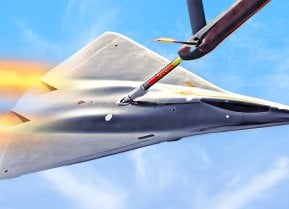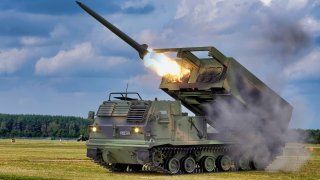Ukraine's Kursk Offensive Signals a Bold Shift in the War with Russia
There is no more choice between escalation and no escalation. To stop Putin, one can’t avoid escalatory moves. The United States is interested in having this escalation, if not coordinated with Ukraine, under control.
“If we lack capacities to stop Vladimir Putin inside Ukraine, we will stop him inside Russia.” That was the message Ukraine sent to its Western partners after more than two years of war. The message was simply ignored by many world powers.
Ukraine is capable of striking or invading Russia? No way.
It cannot happen because Ukraine simply doesn’t have the proper capacities or the bravado to use Western weaponry to strike Russia. These talking points are very common in the capitals of world powers, even ones aligned with the Ukrainian cause. It is what I am used to hearing from government officials and experts across the globe.
Ukraine Did What it Warned About
First, the Ukrainian military ramped up medium- and long-range drone production and started to strike at Russian targets which are vital to sustaining Putin’s war efforts, including oil refineries. The issue became a matter of special concern for the U.S. government, but ultimately, it didn’t stop Ukraine from continuing the campaign. As a result, in July of this year, Ukraine managed to launch more long-range attack drones into Russia than Russia had into Ukraine.
Since Ukraine’s efforts to eliminate Russia’s threat were not properly supported by NATO countries and their allies, a significant delay in military aid and hesitance to allow Ukraine to use Western long-range missiles to strike Russian territory deeper than the Kursk region created an opportunity for Russia to conduct its bloody and destructive attacks on civilian infrastructure through twenty-seven of the thirty-one days of August.
Ukraine had to prevent a Russian offensive in the air and land in the north of Ukraine; they needed to pull the Russians somewhere else, and thus, the true necessity of the Kursk offensive was realized. The operation was described as well-planned and bold, but in reality, it comes from a place of deep desperation. The operation itself is waving a red flag, attempting to demonstrate that the war in Ukraine is not static, there is no deadlock, and it’s not an almost frozen conflict.
Even after almost three years of the war, Ukraine is still able to conduct a counteroffensive with the potential to change the course of the war in its favor. No less importantly, Ukraine clearly showed that Putin’s forces are, indeed, destructible, and Kyiv broke down suppositions that the war is simply unwinnable for Ukraine.
Are Western Powers Fatigued with Ukraine?
Ukraine sent a loud, surprising message with its bold Kursk incursion: even if there are still doubts that Ukraine is capable of winning the war, there should be no doubts that Ukraine would agree to any negotiations deal under the current conditions of Russian occupation. Under current conditions, realistic negotiations are thrown out the window like a problematic Russian bureaucrat.
Despite promises to help Ukraine to the extent that Kyiv would be able to negotiate from a position of strength, many Ukrainians are scratching their heads wondering, "Are our key security partners, including the United States, interested in strengthening Ukraine’s push back against the invaders or has their interest to see Ukraine victorious waned? Are they convinced that Ukraine would more easily agree on any negotiations from a position of weakness, not a position of strength?"
It looks like the current U.S. administration is more comfortable when Ukraine is invading Russia, temporarily occupying its territory, than when the Ukrainian military targets Russian military objects while staying within Ukraine’s pre-invasion borders.
By conducting the Kursk incursion, Ukraine silenced critics who called for Ukraine to capitulate, and give now-occupied Ukrainian regions to Russia for the sake of peace. Have any experts or world powers been calling for Russia to capitulate its land?
It is obvious that the world sees Ukraine as a weaker power compared to Russia, so the burden of “creating peace” through sacrifice is often levied on Ukraine.
As said previously, there is no more choice between escalation and no escalation. To stop Putin, one can’t avoid escalatory moves. The United States is interested in having this escalation, if not coordinated with Ukraine, under control. It’s not too late to support the Kursk momentum and greenlight a decision on deep strikes by Western longer-range missiles: American Army Tactical Missile System (ATACMS), British Storm Shadows, French Long Range Autonomous Cruise Missile System (SCALP), and ideally also German Target Adaptive Unitary and dispenser Robotic Ubiquity System (TAURUS).
Further, Ukraine’s allies should find a way to create an air defense shield over the west and southwestern parts of Ukraine. It is the least President Joe Biden can do to demonstrate that the United States is serious when it comes to preparing Ukraine for the negotiations from the position of strength, not from the position of weakness. It is the minimum he could do for Ukraine’s presidential legacy.
About the Author
Alyona Getmanchuk, founder and director of New Europe Center think tank, Kyiv, Ukraine
Image Credit: Creative Commons and/or Shutterstock.


